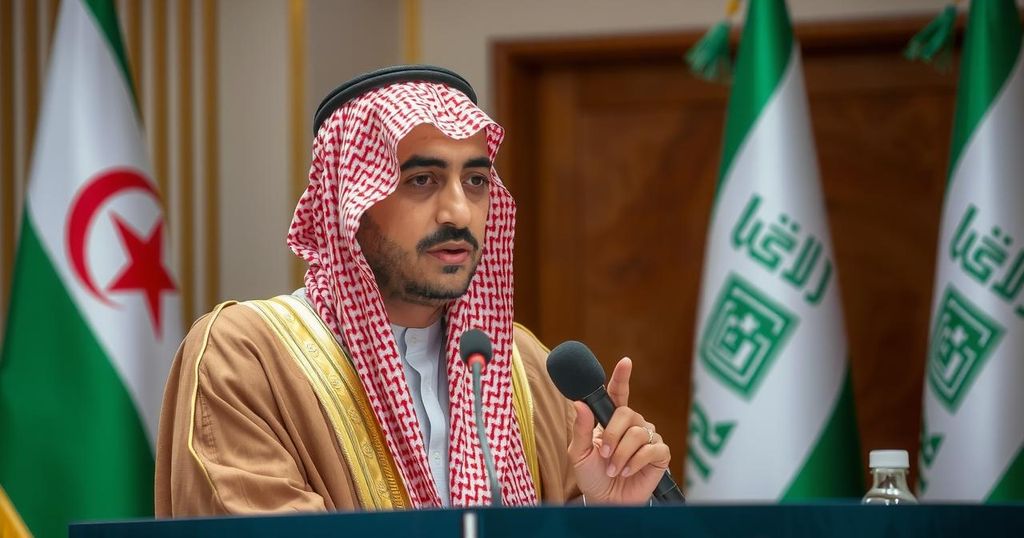Syria’s New Leader Emphasizes Positive Redefinition of Lebanese Relations

Syria’s new leader, Ahmed Al-Sharaa, announced his commitment to end negative interference in Lebanon, emphasizing a fresh chapter in bilateral relations. During a meeting with Lebanese Druze leader Walid Jumblatt, he urged for a strong economy and political stability in Lebanon while addressing the legacy of violence from the previous regime. Key issues, including accountability for past crimes and the status of detainees, remain significant topics of discussion.
In a significant diplomatic development, Syria’s newly appointed leader, Ahmed Al-Sharaa, declared in Damascus his intention to positively redefine Syrian-Lebanese relations, distancing himself from the negative legacy of the previous regime. During a meeting with a prominent Lebanese delegation led by Walid Jumblatt, Al-Sharaa emphasized that Syria would no longer interfere negatively in Lebanon’s affairs, citing past violent interventions that resulted in key political assassinations.
Al-Sharaa remarked, “Syria was a source of concern and disturbance for Lebanon, and its interference in Lebanese affairs was negative,” and he further stated, “Lebanon needs a strong economy and political stability that Syria will support.” This visit by Jumblatt marks a departure from years of tension and comes after the fall of Bashar Assad’s regime, highlighting a potential thaw in relations.
The meeting also addressed the history of cooperation among Lebanese factions, with Al-Sharaa announcing a new chapter for Syrian-Lebanese interactions, free from the prior regime’s oppressive influence. Jumblatt expressed hope for formal diplomatic relations, calling for accountability for past crimes against both Lebanese and Syrian individuals.
Additional developments included reports of the Lebanese Public Prosecution receiving a request regarding the arrest of Jamil Al-Hassan, an official under the defunct Assad regime, in connection to war crimes. As these diplomatic discussions unfold, issues surrounding detainees linked to the Syrian government remain a critical humanitarian concern, prompting protests in Lebanon calling for their release.
The relationships between Lebanon and Syria have a tumultuous history, characterized by years of conflict and intervention, especially during the regime of Bashar Assad. The recent dynamics have shifted with the fall of Assad’s control, leading to significant changes in how both nations aim to interact moving forward. Al-Sharaa’s statements suggest a conscious effort to reshape Syria’s foreign policy towards Lebanon, prioritizing mutual respect and non-interference, which reflects broader aspirations for regional stability.
The recent dialogue between Syrian leader Ahmed Al-Sharaa and Lebanese Druze leader Walid Jumblatt marks a pivotal shift in relations following years of conflict. Al-Sharaa’s commitment to avoid negative interference in Lebanese affairs suggests a new diplomatic phase that prioritizes stability and cooperation. However, the ongoing issues surrounding past abuses and detainees remain at the forefront of Lebanon’s concerns as both nations navigate this evolving partnership.
Original Source: www.arabnews.com








